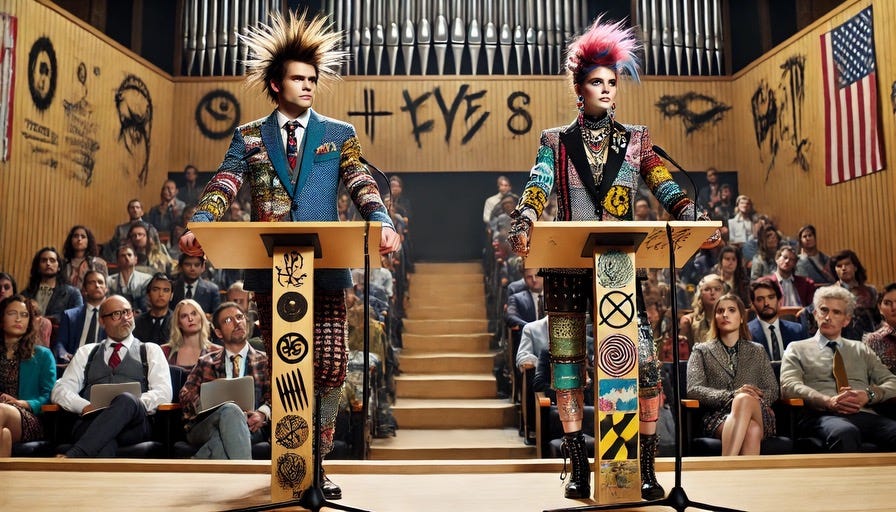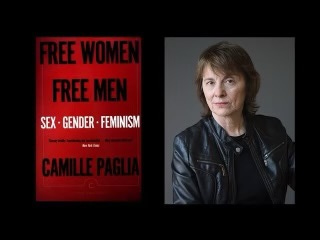In an era increasingly defined by its hypersensitivity to the limits of free speech, my fascination with heterodoxical authors—those who deliberately challenge mainstream norms and orthodox ideas—feels both rebellious and necessary.
Let’s face it, our world today is awash in noise — viral hot takes, rapid cancellations, and a suffocating sense of ideological conformity. Amid this cacophony, heterodoxical thinkers stand out not just for the content of their arguments but for the boldness of their dissent.
Their willingness to embrace controversy and risk public scorn serves as a reminder that freedom of thought is not merely a luxury but a survival mechanism for societies teetering on the edge of intellectual stagnation.
But heterodoxical thinking isn’t a simple good. It is a double-edged sword. To embrace its vitality is to reckon with its dangers: a world where challenging the norm might also empower bad-faith actors or reckless provocateurs.
Yet, without these outliers, our libraries and bookstores would devolve into echo chambers of safe, socially-approved narratives, leaving us unprepared to confront the complexities of human experience.
Three Heterodoxical Thinking Authors
In exploring this fascination, consider three authors who represent heterodoxical thinking at its best (and sometimes worst):
💥 Christopher Hitchens – Hitchens’ body of work embodies intellectual contrarianism. Whether taking on organized religion in “God Is Not Great” or critiquing political hypocrisies on both the Left and Right, Hitchens’ heterodoxy challenged ideologies regardless of popular sentiment.
His prose burns with wit, erudition, and a fearless willingness to offend. His work reminds us that dissent must often be uncomfortable to matter.
💥 Camille Paglia – As a cultural critic, Paglia is fiercely unclassifiable. Her critiques of feminism, postmodernism, and mainstream liberal thought—coupled with her unabashed praise of the Western canon—make her an incendiary yet vital voice.
Paglia’s refusal to adhere to identity politics or cultural orthodoxies has rendered her both a pariah and a prophet, a fitting fate for someone who dares to walk a road less traveled.
💥 Jordan Peterson – Perhaps the most polarizing figure of this trio, Peterson’s books (i.e 12 Rules for Life) and lectures have made him a beacon for those seeking traditional order in a chaotic world.
He is loved by some for his defense of free speech and vilified by others for his critiques of progressive ideologies. Peterson illustrates the tightrope heterodoxical thinkers walk: to their fans, they are liberators; to their detractors, dangerous demagogues.
Each of these authors speaks to the power of heterodoxy to provoke thought, break intellectual silos, and challenge assumptions. Yet, their work also highlights its potential pitfalls, including alienation, misinterpretation, and the risk of fostering divisiveness.
The Positives and Negatives of Heterodoxical Voices
💥 Positives
Heterodoxical authors prevent intellectual complacency. They force us to interrogate our beliefs and biases, providing the kind of intellectual rigor necessary for societal growth. By challenging prevailing ideas, they push the boundaries of human understanding.
In a time when algorithms feed us only what aligns with our preferences, these thinkers disrupt the monotony of ideological conformity.
They also spark critical conversations. Hitchens made atheism an unavoidable topic. Paglia has resurrected debates about art, culture, and gender that many thought settled. Peterson’s defense of archetypes and myth challenges our assumptions about tradition and progress. Their voices demand that we re-engage with uncomfortable truths, an act that strengthens democratic dialogue.
💥 Negatives
However, heterodoxical thinkers often tread the line between provocation and recklessness. In the pursuit of unorthodoxy, they may oversimplify or caricature opposing views, creating false dichotomies. Peterson, for instance, has been accused of essentializing gender roles, while Paglia’s critiques of feminism often alienate those she seeks to engage.
Additionally, their ideas can be weaponized. When heterodoxical authors take controversial stances, they risk empowering fringe movements or bad-faith interpretations that distort their message. This is a particular danger in the digital age, where soundbites travel faster than nuance.
Finally, these authors’ positions can entrench ideological divides. Rather than fostering dialogue, their work may deepen polarization, as readers retreat into camps of ardent supporters or vehement detractors.
Libraries and Bookstores: Gatekeepers or Platforms?
Libraries and bookstores face a delicate balancing act in responding to heterodoxical authors. Should they embrace these works as essential to free speech or reject them for their capacity to inflame?
The role of these institutions is increasingly fraught. In some quarters, there are calls to remove books deemed “offensive,” while others champion the right of every author to be heard. Libraries, with their historical mission to preserve knowledge, are uniquely positioned to champion heterodoxical thought, offering a space where all ideas can coexist.
Bookstores, however, operate in a commercial context that may lead them to avoid controversy, choosing financial security over intellectual daring.
Yet, both must recognize the importance of heterodoxical works in fostering intellectual diversity. A library without God Is Not Great or Sexual Personae is one that denies its patrons the full spectrum of human thought. A bookstore that shelves 12 Rules for Life next to its critiques exemplifies the pluralism necessary for meaningful discourse.
In a world teetering between ideological rigidity and chaotic freedom, heterodoxical authors remind us of the importance of intellectual courage. They show us that free speech is not just the right to agree but the right to dissent, provoke, and question—even when it offends. Their work is messy, necessary, and deeply human.
As I sit surrounded by books that challenge my thinking, I am reminded that the real danger lies not in what these authors say but in what we lose when we silence them. Libraries, bookstores, and readers must all commit to preserving spaces where dissent thrives, where questions remain unanswered, and where the boundaries of thought are continually tested. For it is in this friction that progress truly emerges.
Would you be kind enough to consider contributing to my independent writing journey via the “subscribe” button above?
Or you can tip me some coffeehouse love here ( I am a dirty chai fan ).
Your support will be most appreciated as this is my full-time work! In the meantime, stay thirsty for a great book.
Diamond-Michael
Independent Journalist and Global Book Ambassador







I gravitate toward the provocateurs who actually have something to provoke against. They make me think and look at things in a new way. Some who think they are provocative generally just assemble vulgar language in a different way.
Thank you and well done. I am familiar with Hitchens but not the others.